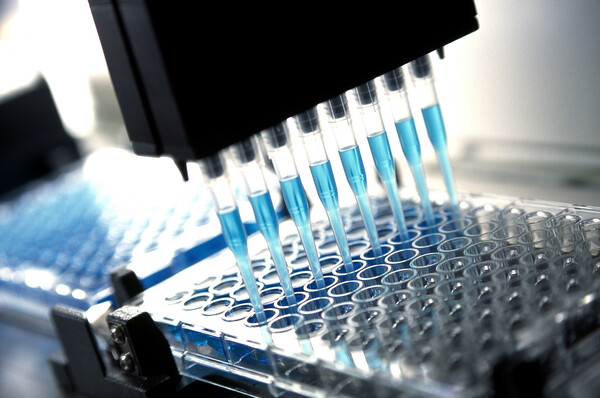A local council is advocating for the establishment of a national gene and cell therapy center to expand access to treatment for rare and incurable diseases and revitalize gene and cell therapy research and industry.
The council pointed out that despite possessing the original technology and sufficient research capacity for treatments for rare and incurable diseases, it is difficult to conduct clinical research and clinical trials, let alone develop treatments, due to legal and institutional deficiencies.

On Wednesday, the Sejong City Council adopted a resolution calling for establishing a national gene and cell therapy center. (Credit: Getty Images)
At its fourth plenary session on Wednesday, the Sejong City Council adopted a resolution calling for the establishment of a national gene and cell therapy center.
“Patients, including children, in desperate need of gene and cell therapy, do not have the opportunity to receive treatment due to high treatment costs and difficult regulations, and there are unfortunate cases of children dying every year despite the availability of treatment technology,” the resolution said. “Every year, relevant ministries discuss revising laws and improving the system to increase access to treatment, but it remains insufficient.”
The council pointed out that fragmented tasks don't deliver tangible results despite huge budgets. For instance, the Ministry of Science and ICT is in charge of R&D, the Ministry of Health and Welfare is in charge of clinical research, the Ministry of Food and Drug Safety is in charge of regulation, and the industry supports biotech companies.
As a result, Korea's gene and cell therapy research is lagging internationally, the council said.
“Advanced regenerative medicine is a high value-added industry, but it is difficult for companies to promote it alone, so active support from the government is essential,” the council said. “Relevant ministries, including the Ministry of Economy and Finance, the Ministry of Health and Welfare, and the Ministry of Food and Drug Safety, should improve budget planning and investment efficiency, and strengthen policy support to improve the patient treatment environment.”
“Gene and cell therapy is a national strategic technology that the government should take an active role in,” the council said. “It is necessary to build a gene and cell therapy center that can integrate research and medical treatment, and it is essential to operate a flexible system so that the Ministry of Science and ICT's R&D support and the Ministry of Health and Welfare's clinical support are closely linked.”
The council argued that Sejong City is the most suitable area to build a gene and cell therapy center. It noted that it has the highest child population in the country, so there are likely to be many infants and young children with rare and difficult diseases. In addition, Sejong has the geographical advantage of being close to Daejeon and Osong, which can maximize the development of advanced medical technology and research capabilities.
“Sejong City has the highest birth rate and population of children aged 0 to 9 in the country. It is likely to have many infants and children with rare and difficult diseases, so it is possible to provide prompt and efficient medical services to patients in urgent need of treatment,” it said. “It is also possible to create an optimal collaborative ecosystem where basic research, clinical research, and patient treatment are conducted in one place.”
Researchers can work in a stable environment and collaborate with companies to accelerate the development of cutting-edge biotechnology, and Korea can grow into a global hub for gene and cell therapy by creating a strategic medical and bio-industry cluster at the national level, it added.
“We strongly urge the central government and National Assembly to establish a gene and cell therapy center in Sejong City, improving treatment, research, and the regulatory framework to support regenerative medicine and attract industry investment,” the council said.